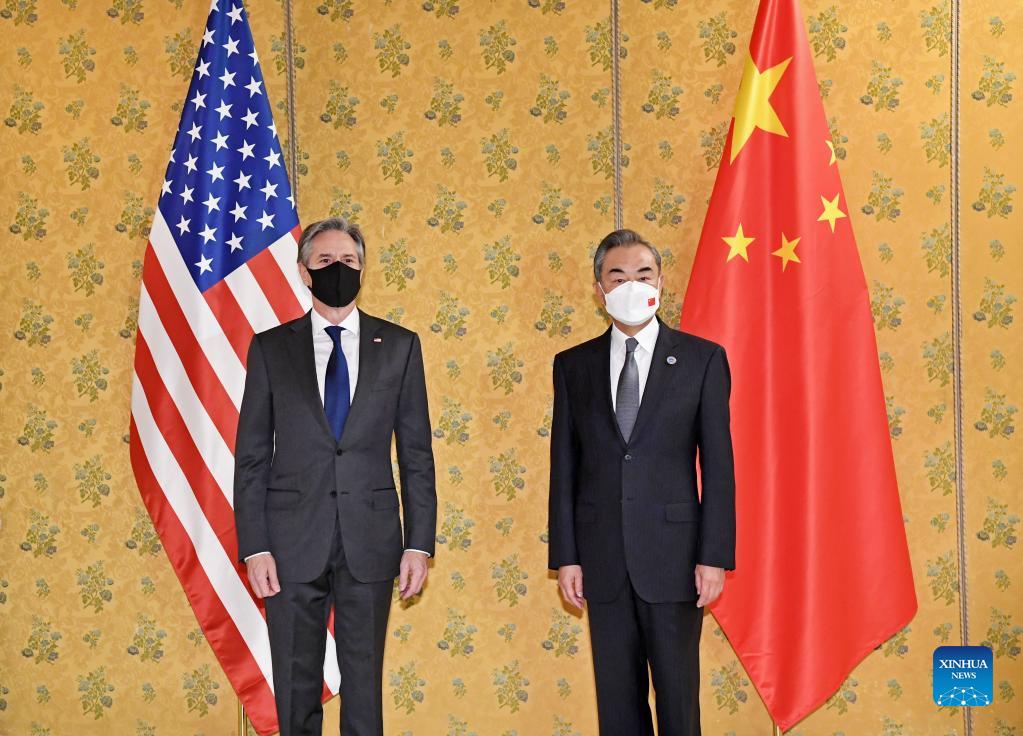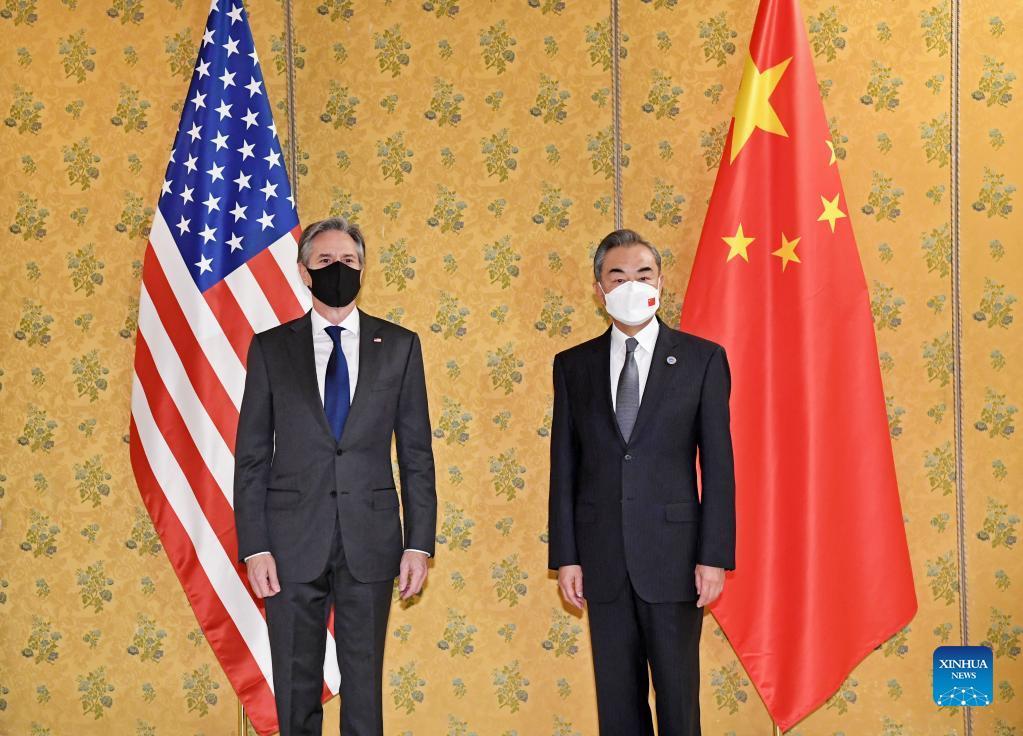
Chinese State Councilor and Foreign Minister Wang Yi (R) meets with U.S. Secretary of State Antony Blinken in Rome, Italy, Oct. 31, 2021. (Xinhua/Jin Mamengni)
ROME, Oct. 31 (Xinhua) -- Bilateral relations between China and the United States in the past few years have suffered an all-round impact due to the wrong China policy pursued by the United States, Chinese State Councilor and Foreign Minister Wang Yi said here on Sunday during his meeting with U.S. Secretary of State Antony Blinken.
The United States has wantonly interfered with China's internal affairs, Wang stressed, noting that the current U.S. Congress has introduced more than 300 anti-China bills, and the United States has included more than 900 Chinese entities and individuals in various unilateral sanctions lists, which severely disrupted the normal bilateral exchanges.
Moreover, the United States is also patching up various small circles to suppress China on a global scale, and even exerting pressure on many small and medium-sized countries, Wang said, adding that these practices are not in line with the interests of the peoples of the two countries, not in line with the expectations of the international community, not in line with the development trend of the times, and hence China voices its clear opposition.
The important experience accumulated over the past four decades since the establishment of diplomatic relations between the two countries is that both China and the United States stand to gain from cooperation and lose from confrontation, Wang said, adding that the two sides have learned from contacts in Anchorage, Tianjin and Zurich that they must respect each other and treat each other equally.
The Secretary-General of the United Nations has repeatedly called for the world to prevent division and avoid a new cold war, Wang said, adding that the important consensus reached by the heads of state of China and the United States during the two phone conversations this year is that the two sides should restart dialogue and avoid confrontation.
The urgent task at the moment is that the two sides must earnestly implement the consensus reached by the two heads of state, and make political preparations and provide necessary conditions for the next phase of exchanges, Wang stressed.
Wang expressed the willingness to establish regular contacts with Blinken to exchange views timely and in a frank manner on how to manage and control differences between the two sides, properly resolve problems that arise, so as to enhance understanding, eliminate doubts, avoid misjudgments and explore cooperation.
The Taiwan issue is the most sensitive issue between China and the United States, Wang said, adding that if it is handled wrongly, it will cause subversive and overall damage to bilateral ties.
Wang pointed out that recently, the situation across the Taiwan Strait has become tense again, and the United States has repeatedly stated that this was caused by China's change of the status quo, yet this is not a fact at all but a serious misleading to the international community.
Wang emphasized that the true status of the Taiwan issue is that there is only one China, Taiwan is a part of China, and the mainland and Taiwan belong to the same country, noting that historical experiences have repeatedly proved that any change to this status quo will seriously damage the stability across the Taiwan Strait and even create a crisis.
The crux of the current situation across the Taiwan Strait is because the Taiwan authorities have repeatedly tried to break through the one-China framework, and the United States' connivance and support for "Taiwan independence" forces is also to blame, Wang said, stressing that to stop the development of the "Taiwan independence" tendency is to maintain peace across the Taiwan Strait.
We urge the United States to realize the serious harm of the "Taiwan independence," to pursue a real one-China policy, instead of a fake one, to fulfill its commitments to China faithfully rather than treacherously. We also urge the United States to truly implement the one-China policy and put it into actions, instead of saying one thing and doing another, Wang said.
For his part, Blinken reiterated that the United States will continue to adhere to the one-China policy, and the two sides should develop bilateral relations in the spirit of mutual respect. The United States is willing to maintain communication with China, manage differences responsibly, and avoid confrontation or crisis, he noted.
Wang also expressed China's solemn concern over various issues that the United States has harmed China's legitimate rights and interests, and requested the U.S. side to change its course and push China-U.S. relations back to the track of healthy development.
The two sides also exchanged views on important issues such as climate change, energy supply, Iran nuclear issue, the situation on the Korean Peninsula, Myanmar, Afghanistan, and expressed their willingness to maintain dialogue on addressing various global challenges. Enditem




 A single purchase
A single purchase









